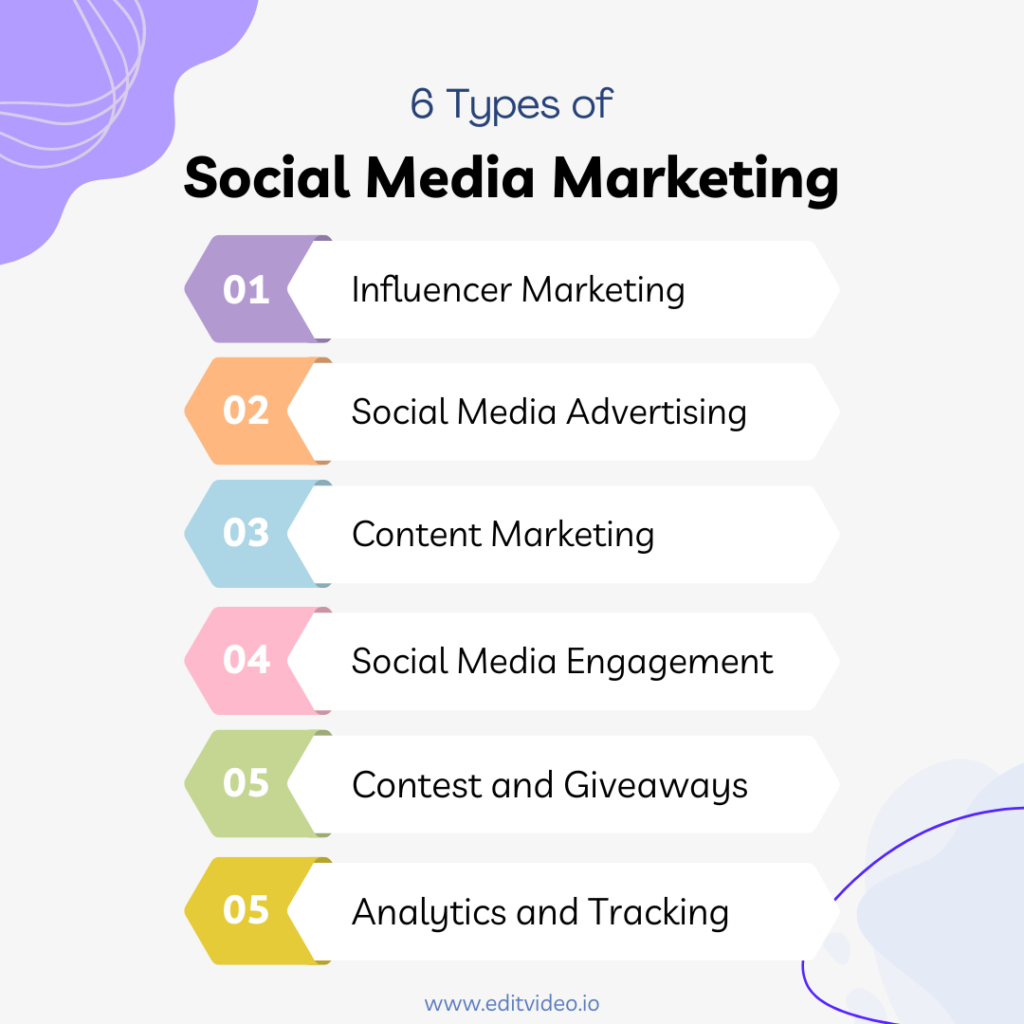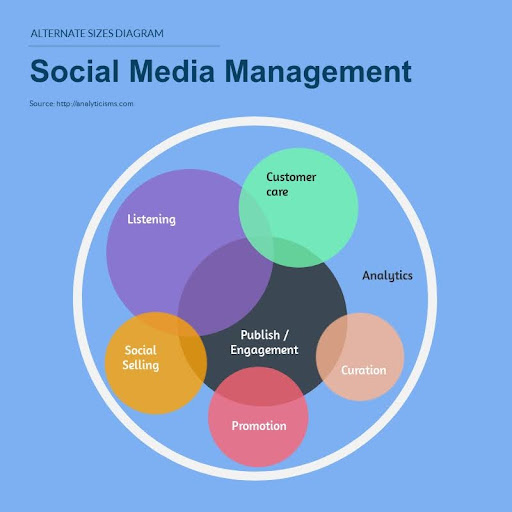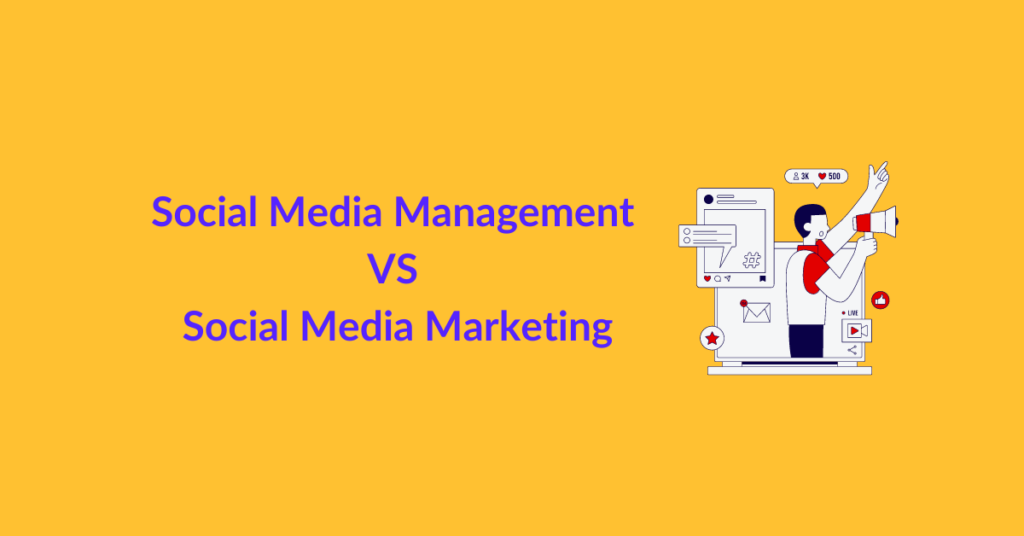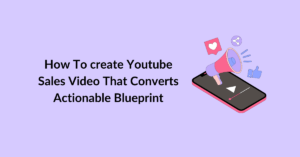Planning to build your social media presence? That’s a step in the right direction!
According to the most recent report, 85% of people make buying decisions that are heavily influenced by social media.
In fact, ‘social proof’ is expected to dominate buying decisions even more in 2024. People are not ready to recognize brands with dead social media pages or bare minimum social media engagement. What’s even more shocking is the fact that 92% of people are hesitant to buy from brands that have no customer reviews or testimonials on their website or social media pages.
So, clearly — having a strong social media presence is no longer an option for businesses, entrepreneurs, solopreneurs, and even content creators. It’s a staple!
On that note, this guide is compiled to help you get started with a clear lens.
You see, people who seek professional help for social media growth often confuse between social media management and social media marketing. They end up paying for the wrong thing and remain unable to achieve their goal!
So, in this post, we’ll highlight the differences between social media marketing and social media management. Along with settling the confusion, we’ll also help you choose the right pick for your needs.
Let’s get started!
Table of Contents
What is Social Media Marketing?
Social Media Marketing (SMM) is a strategic approach focused on promoting and advertising products, services, or content across various social media platforms to achieve specific business goals, such as:
- Increasing brand awareness
- Driving website traffic
- Promoting specific product launches
- Generating leads and conversions
- Gaining competitive positioning, etc.
Unlike organic growth, which relies on naturally occurring interactions, social media marketing involves paid campaigns and sponsored content to reach a targeted audience.

How does it work?
Social media is a dynamic space — and so, neither social media marketing nor social media management is a linear process.
Both processes are a combination of sub-processes, which come together to build the bigger picture. Here are the sub-processes involved in social media marketing:
1. Targeted Advertising
Social media marketing leverages the robust advertising capabilities of platforms like Facebook, Instagram, Twitter, and LinkedIn. Advertisers can define their audience based on demographics, interests, behaviors, and other criteria, ensuring their content reaches the most relevant users.
2. Content Promotion
SMM also involves the creation and promotion of engaging content, such as:
- Sponsored posts
- Carousel ads
- Videos
- Other types of interactive content
By investing in compelling visuals and messaging, businesses aim to capture the attention of their target audience and drive specific actions, such as clicks, conversions, or app installs.
3. Data Analytics and Optimization
Social media marketers extensively use analytics tools to track the performance of their campaigns. Metrics like reach, engagement, conversion rates, and return on ad spend (ROAS) help assess the effectiveness of the marketing strategy.
Based on this data, marketers can refine their approach for better results.
4. Influencer Collaborations
Another aspect of social media marketing is partnering with influencers. This paid partnership helps extend the reach and credibility of a brand as influencers — who have a significant following on social media — can promote products or services authentically.
They can share videos with their honest reviews or a storytelling video where they demonstrate effective use of the product/service. This is received as a recommendation by the audience. And when their favorite influencer endorses the product/service, you automatically win the audience’s trust.
At times, the payment to influencer is not in terms of money. Rather, it is in terms of exposure. They create a promotional video for you and you could do the same for them. This is also known as cross-promotion.
5. Conversion Tracking
Moreover, SMM allows for precise tracking of conversions. Whether the goal is to drive website visits, sign-ups, or sales, marketers can monitor the customer journey from social media engagement to the desired action. This provides valuable insights into the effectiveness of a campaign.
What is Social Media Management?
Social Media Management (also known as SMM😅) is the holistic and organic practice of creating, curating, and publishing content on social media platforms with the goal of building and maintaining a brand’s online presence. It emphasizes engagement, community building, and building genuine connections with the audience.
But contrary to social media marketing, SMM primarily focuses on the non-paid aspects of social media to cultivate a loyal and active online community.
How does it work?
Similar to social media marketing, social media management is a dynamic process too. These are the sub-processes that come under its umbrella:
1. Content Planning and Creation
Social Media Management starts with the development of a content strategy. This involves planning the types of content to be shared, including images, videos, articles, and other relevant materials.
The emphasis is on creating valuable, informative, and entertaining content that resonates with the target audience. It’s a plus if the content aligns with your marketing or sales funnel too.
2. Consistent Posting and Scheduling
SMM involves regular and consistent posting on social media platforms. So, social media managers use scheduling tools to plan and automate posts, ensuring a steady stream of content without overwhelming the audience.
Like YouTube videos and website blog posts, consistency is key to maintaining audience interest and loyalty!
3. Community Engagement
Unlike the transactional nature of social media marketing, social media management focuses on building relationships. Hence, social media managers actively engage with the audience by responding to comments, messages, and mentions. This two-way communication helps in understanding the audience’s preferences and concerns.
4. Audience Analysis
SMM also includes analyzing the demographics, behaviors, and preferences of the target audience. To accomplish this, social media managers use analytics tools to gain insights into audience engagement. It allows them to tailor content to better resonate with followers.
5. Brand Advocacy
Social Media Management aims to turn followers into brand advocates. It creates a sense of community and encourages user-generated content. So basically, social media managers can leverage satisfied customers to promote the brand organically.
6. Monitoring Trends and Conversations
SM managers tend to keep a close eye on trends, industry discussions, and relevant hashtags. By staying informed about what’s happening in the social sphere, they can participate in conversations, share timely content, and keep the brand’s messaging relevant.
7. Crisis Management
In the event of negative feedback or a crisis, social media managers play a crucial role in managing the brand’s reputation. Timely responses, transparency, and a proactive approach help mitigate potential damage and demonstrate the brand’s commitment to addressing concerns.

Differences: Social Media Management VS Social Media Marketing
Let’s check out the differences between social media management and social media marketing side by side:
Feature | Social Media Management (SMM) | Social Media Marketing (SMM) |
|---|---|---|
Primary Focus | Building and maintaining organic, authentic online presence | Paid promotion and advertising to achieve specific goals |
Nature of Activities | Organic content creation, community engagement, and analysis | Paid advertising, sponsored content, and targeted campaigns |
Goal | Establishing and nurturing relationships, fostering community | Achieving specific business objectives through paid strategies |
Audience Interaction | Emphasis on two-way communication, responding to comments | Transactional, focuses on directing audience to take specific actions |
Content Type | Varied and organic, including user-generated content | Predominantly promotional, crafted for specific marketing goals |
Budget Allocation | Often emphasizes time and effort over monetary investments | Requires budget allocation for ad spend and sponsored content |
Influencer Collaboration | Collaborative partnerships focus on brand advocacy | Paid partnerships to leverage influencers for product promotion |
Timeline for Results | Gradual and sustained growth over time | Immediate and measurable results depending on campaign duration |
Key Metrics | Engagement metrics (likes, comments, shares), community growth | Conversion rates, click-through rates, return on ad spend (ROAS) |
Approach to Advertising | Minimal reliance on paid advertising | Heavily relies on paid campaigns and sponsored content |
Long-Term vs. Short-Term Focus | Long-term brand building and loyalty | Short-term goals with a focus on immediate conversions |
Who Does the Job? | Social Media Managers, Community Managers | Social Media Marketers, Digital Marketing Specialists |
Which one to invest in?
The differences are clear. But how do you figure out which one should you be investing in currently? Which one’s a better choice for your business? Or is it wise to invest in both simultaneously?
Here are some essential factors that can help you make an informed choice:
1. Business Goals and Priorities
Assess your immediate business goals. If you’re looking to establish a long-term online presence, build a community, and nurture customer relationships, social media management may be the primary focus.
On the other hand, if you have specific short-term objectives like increasing sales, driving website traffic, or promoting a new product, social media marketing might be more suitable.
2. Time Sensitivity of Goals
Evaluate the urgency of your goals. Social media management tends to yield results over time as it focuses on organic growth and relationship-building.
So, if you have time-sensitive campaigns or promotions, social media marketing is the way to go. It can provide more immediate and measurable outcomes.
3. Current Online Presence
Examine your existing online presence. If your brand is relatively new or lacks engagement on social media platforms, investing in social media management to gradually build a loyal audience might be a strategic move.
If you already have a substantial following and want to capitalize on immediate conversions, social media marketing might be the right choice.
4. Nature of Your Business
Consider the nature of your products or services. If your offerings require trust-building and relationship development, social media management is crucial for establishing authenticity and community engagement.
Conversely, if your products or services have a clear value proposition that can be communicated through targeted promotions, social media marketing may yield faster results.
5. Budget Allocation
Lastly, consider your budget constraints. On average, social media marketing can cost you anywhere between $450 – $6000 per month, while social media management could cost you $750 per month (or half of that if you entrust editvideo.io!)
But as you can see, social media marketing is much more costly as compared to social media management. Of course, this is because SM marketing is much more responsive.
So, consider your financial constraints too before you take your final decision.
Final Words
Summing up, social media management is an organic way to grow on social media, which is although economical but time-taking. On the contrary, social media marketing is a paid way to grow on social media. It’s quick but expensive.
Both have their pros and cons. We recommend settling with the one that aligns with your budget, business goals, general nature of business, time sensitivity, and current digital presence.
If you still have trouble deciding which one to go with, feel free to shoot us a DM on insta. Our expert social media managers will be happy to help you out!




